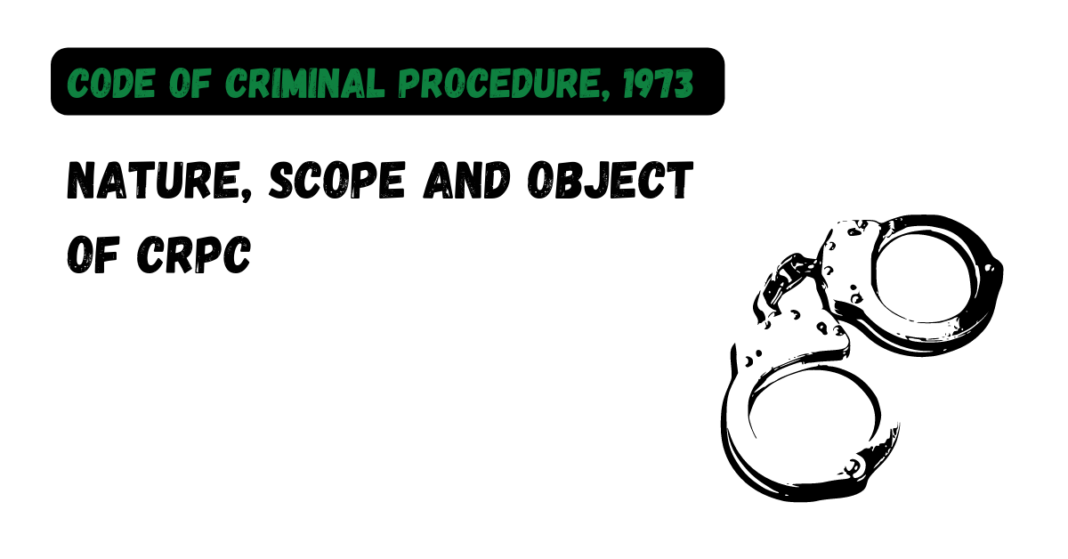Nature of CrPC
- The Code of Criminal Procedure (CrPC) is a procedural law that outlines the process for the investigation and trial of criminal offenses in India.
- It is a comprehensive legislation that covers all aspects of criminal proceedings from the point of registration of a criminal case till the delivery of judgment.
- The CrPC is applicable to all criminal cases in India except those governed by special laws such as the Narcotic Drugs and Psychotropic Substances Act and the Prevention of Money Laundering Act.
Scope of CrPC
- The CrPC governs the procedures for the investigation, inquiry, trial, and appeal of criminal cases.
- It lays down the procedure for the registration of FIR, arrest, bail, search and seizure, filing of charge sheet, framing of charges, and other procedural aspects of criminal proceedings.
- It provides for the establishment of different types of criminal courts, their jurisdiction, powers, and functions.
- It also deals with the execution of sentences, appeals, revisions, and references.
Object of CrPC
- The main objective of the CrPC is to ensure that the investigation and trial of criminal cases are fair, just, and transparent.
- It aims to provide an effective mechanism for the investigation of crimes and the prosecution of offenders while protecting the rights of the accused.
- It seeks to ensure that the law is applied equally to all, irrespective of their social, economic, or political status.
- The CrPC also seeks to ensure speedy disposal of criminal cases to avoid undue delay in the delivery of justice.





